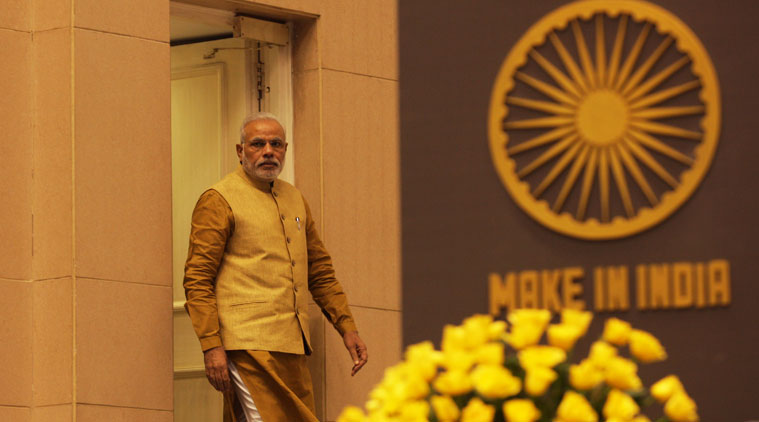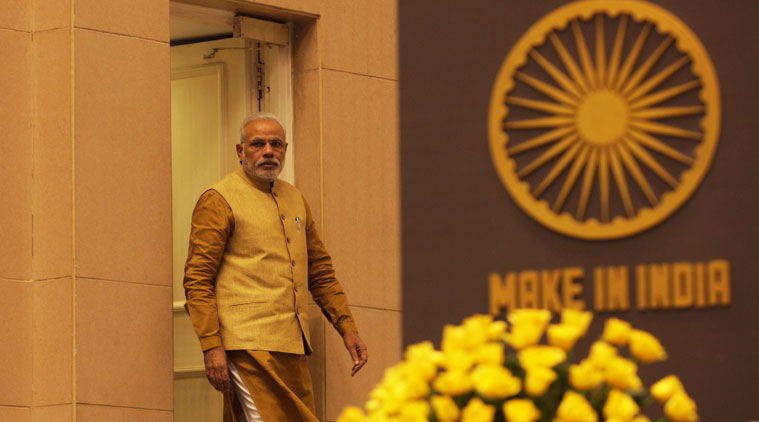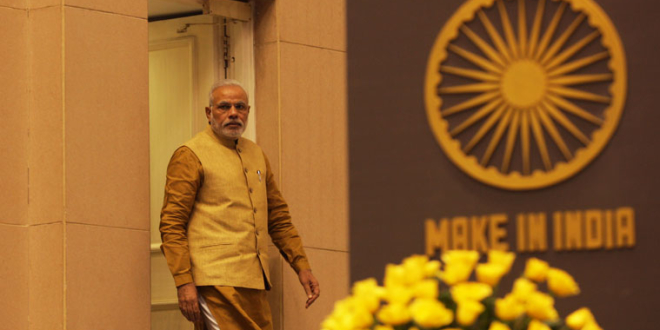
 Swachh Bharat, Make in India, Skill India and Digital India are increasing the government-public interface.
Swachh Bharat, Make in India, Skill India and Digital India are increasing the government-public interface.
The cover story “Turning the Tides” in the Organiser says that the brand value of Bharat has witnessed tremendous improvement in a “Brand Nation survey”. It quotes Brand Finance’s “Nation Brands 2015” annual report and says that “Bharat is the world’s seventh most valued nation brand, with an increase of 32 per cent over last year in its brand value to USD 2.1 trillion.”
“The rise of 32 per cent in Bharat’s ‘nation brand value’ is the highest among all the top-20 countries on the list,” it says. Noting that “this is not an accident”, it lists the achievements of the BJP government. It points out that the government has “digitised about 20 lakh characters of citizen and public records”, millions of people have joined the banking network as crucial sectors like power, aviation and infrastructure have seen a “complete turnaround”. Participatory initiatives like Swachh Bharat, Make in India, Skill India and Digital India are increasing the government-public interface. Noting the “strides on [the] foreign policy and security fronts”, it says that the “credibility of leadership is accepted and appreciated all over the globe”.
“Despite attempts to derail the growth story of Bharat, [a] combination of aggressive diplomacy, soft power and right policies have turned the tides,” it says.
Science Record
A report called “The Guinness Glory” in the Organiser says that “Vijnana Bharati, the country’s largest science movement and an RSS-associated organisation dedicated to the promotion of swadeshi science”, created a world record by conducting the largest practical science lesson involving 2,000 students from 40 schools at IIT, Delhi earlier this month. “The Guinness Book of World Records officially accepted the claim on December 11,” it says. Earlier, the record was held by 1,339 students of Belfast, Northern Ireland, created at the Odyssey Arena in Belfast on February 24, 2015.
Two Chemistry experiments were conducted at the event. One was the “Elephant Tooth Experiment in which hydrogen peroxide underwent catalytic decomposition in the presence of iodide, resulting in the liberation of a large amount of oxygen and foaming up to resemble a giant toothpaste being squeezed,” it says. “The other experiment was discolouration of methylene blue by hydrogen peroxide,” it notes. The focus of the science festival was showcasing “Bharatiya contributions in the field of science and technology over the years,” it says. Union HRD Minister Smriti Irani said that such festivals should be organised in all states.
Real Fanatics
An article in Panchjanya criticises double standards on religious intolerance and fanaticism. Citing the instance of Kamlesh Tiwari, whose remarks on Prophet Muhammad had led to a controversy, the article says that the the remark was “a reaction to cheap comments of UP Minister Azam Khan”. It notes that Khan’s party did not take any action against him for his offending remarks, but “Kamlesh not only faced action under the National Security Act, he was also jailed under several strict provisions”. It was later alleged that Tiwari was associated with the Hindu Mahasabha, only to be refuted by its national president Swami Chakrapani. “He was expelled from the Mahasabha in 2008,” Chakrapani said, adding that no one is allowed to insult other religions. The article also notes that there are several aspects of this case that “reflect the jihadi mentality emerging in the country”. It also notes that “neither his party nor the administration has taken any cognisance” of Khan’s comments, confirming that he has been given “open freedom” by the Akhilesh Yadav government to say anything.
The Hindu community has not opposed Tiwari’s arrest nor supported his statement. But the approach of the maulvis and imams in the case has been “extremely negative and fanatic”, it says.
![]()
Source: New feed






